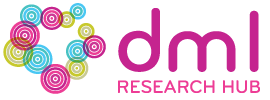Hundreds Converge in Boston March 6-8 for 5th Annual Digital Media and Learning Conference
(IRVINE, CA) – The 5th annual Digital Media and Learning Conference, themed “Connecting Practices,” calls for learning organizations and institutions to pursue “extreme collaborating.” The aim of “extreme collaborating” is to expand access to knowledge, information and social learning opportunities via today’s technology.
Overcoming barriers and building shared goals around today’s abundant new learning environment will be the topic of conversations by hundreds of technologists, educators, activists, and researchers from around the world during the March 6-8 conference at the Fairmont Copley Plaza in Boston.
“One of the things we will focus on is thinking about how we’re putting learning opportunities together in a way that allows youth to seek them and follow their passions,” said Nichole Pinkard, associate professor of computing and digital media at DePaul University in Chicago, founder of Digital Youth Network and Remix Learning, co-founder of YOUmedia and this year’s conference chair.
The purpose of the conference, she said, is to understand how to provide “hooks and triggers” to “enable all young people to access and stay engaged with innovative learning pathways.”
Topics to be discussed at the conference include: putting learners in charge through open technologies, connecting learning institutions and learners to one another, serving underrepresented youth and designing games to advance real-world social change.
The conference, organized by the Digital Media and Learning Research Hub, will highlight numerous examples of connected learning innovations, including:
- Open learning programs that have resulted in learners having run microfinance operations with partners in Africa, built hovercraft, increased participation and success rates on AP exams, written essays underwater and won more than $1 million in merit-based scholarships.
- A multimedia project that uses street dance and other creative encounters to advance race relations and combat social injustice.
- An online fan fiction community that brings together readers and writers to create, read and review fiction works, fostering mentoring relationships that advance writing and intergenerational learning.
- A video game used by high school students to imagine and develop a digital version of an idealized cityscape in Nashville.
- A community-based research project where young people of color in Providence are researching and designing a civic engagement game called The Resisters that blends historical activism, culturally-relevant participatory education and performance.
Delivering the keynote address will be Louis M. Gomez, MacArthur Chair in Digital Media and Learning at UCLA’s Graduate School of Education and Information Studies. Gomez’s scholarship focuses on supporting learning innovations and changing education.
“In an era of online affinity groups, Q&A forums, Wikipedia, MOOCs, neo-MOOCs and anti-MOOCs of different sizes and shapes, learners are encountering an abundance of platforms and practices from which to choose,” said David Theo Goldberg, executive director of the DML Research Hub and director of the University of California’s systemwide Humanities Research Institute, which houses the Hub.
“Educators at all levels and learning institutions are facing a new landscape of challenges and opportunities, and this year’s conference calls on all of us to build shared agendas, best practices, goals and experiments,” he said. “Our aim is to provide a forum for challenging each other to reconsider and reposition the contributions we can make individually, interactively and institutionally to educational change that will serve the needs of all learners.”
More conference information and registration is available online.
About the annual Digital Media and Learning Conference
The conference is produced by the Digital Media and Learning Research Hub. Affiliated with the University of California system’s Humanities Research Institute at UC Irvine, the Hub is dedicated to analyzing and interpreting the impact of the Internet and digital media on education and civic engagement. Its primary emphasis is on connected learning and emergent political practices — participatory politics — as well as initiatives such as connectedlearning.tv, make-to-learn, and alternative credentialing (i.e., badges for learning). All its work, including original research, websites, publications, workshops and the conference, is supported by the John D. and Catherine T. MacArthur Foundation. The opening reception for this year’s conference is being sponsored by Mozilla Foundation.
About the MacArthur Foundation
The MacArthur Foundation supports creative people and effective institutions committed to building a more just, verdant and peaceful world. In addition to selecting the MacArthur Fellows, the Foundation works to defend human rights, advance global conservation and security, make cities better places, and understand how technology is affecting children and society.
Media Contact:
Mimi Ko Cruz
Digital Media and Learning Research Hub
mcruz@hri.uci.edu
(949) 824-4587

